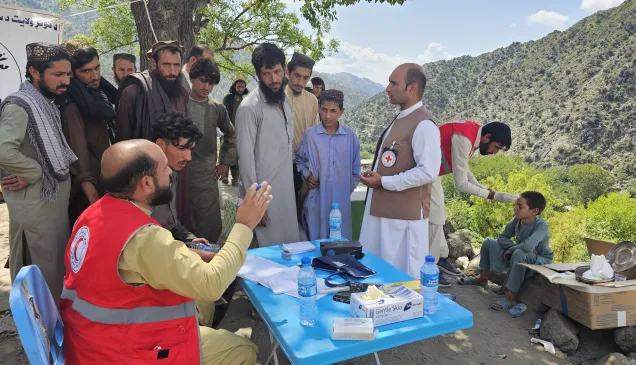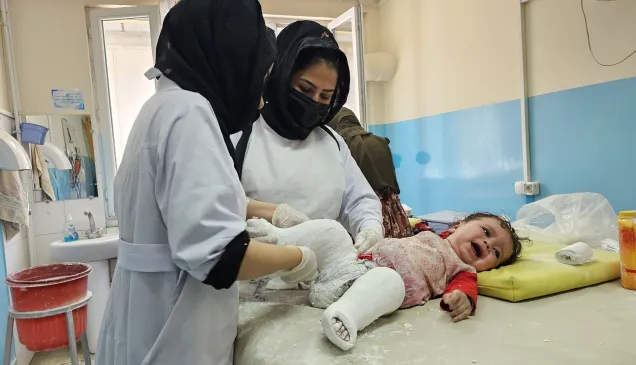Afghanistan: One month of helping people affected by Kunar earthquake
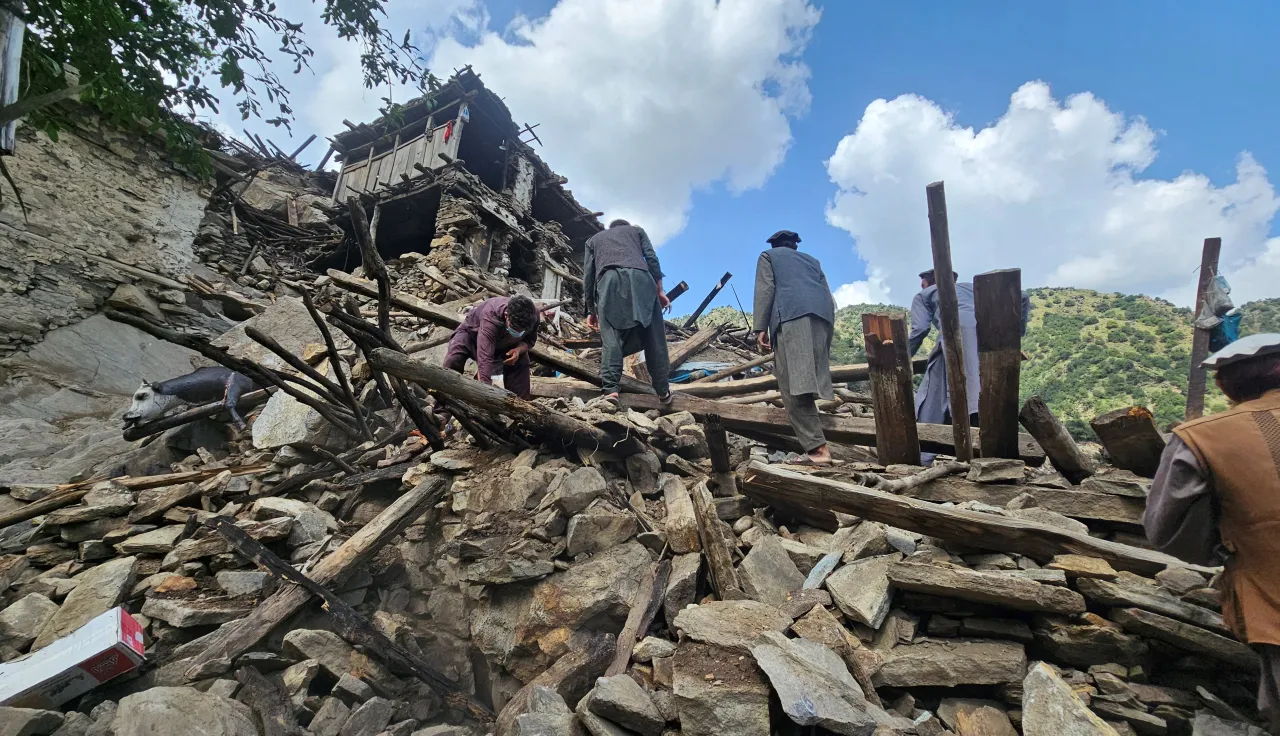
The 6.0 magnitude earthquake that struck Afghanistan on the night of 31 August 2025 shattered the quiet in the valleys of eastern Afghanistan. In an instance, homes crumbled, families were torn apart and entire communities were left grappling with massive destruction, grief and uncertainty. According to latest reports, over 2,200 people were killed, 3,600 people were injured and nearly 6,800 homes were destroyed by the earthquake.
Responding to the urgent call for support by the Afghan Red Crescent Society (ARCS) and Afghan authorities, the International Committee of the Red Cross (ICRC) in coordination with other partners from the International Red Cross and Red Crecent Movement provided emergency assistance so that ARCS volunteers could be sent to the affected areas immediately. We also donated medical supplies to hospitals and health clinics in the hardest-hit provinces of Kunar and Nangarhar.
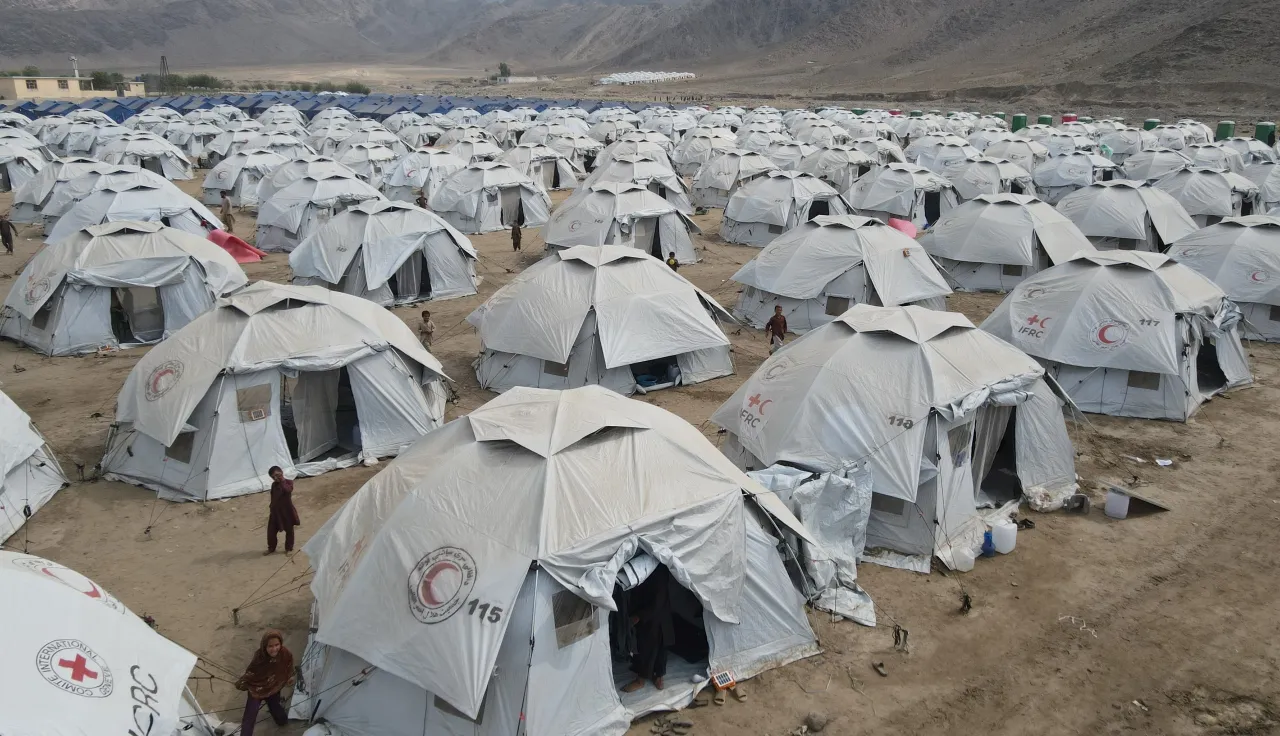
Distributing relief items
We organized the distribution of vital relief supplies across the earthquake-affected areas of Kunar Province, providing timely support through the ARCS that helped families with emergency medical care and other assistance to stabilize and recover following the disaster.
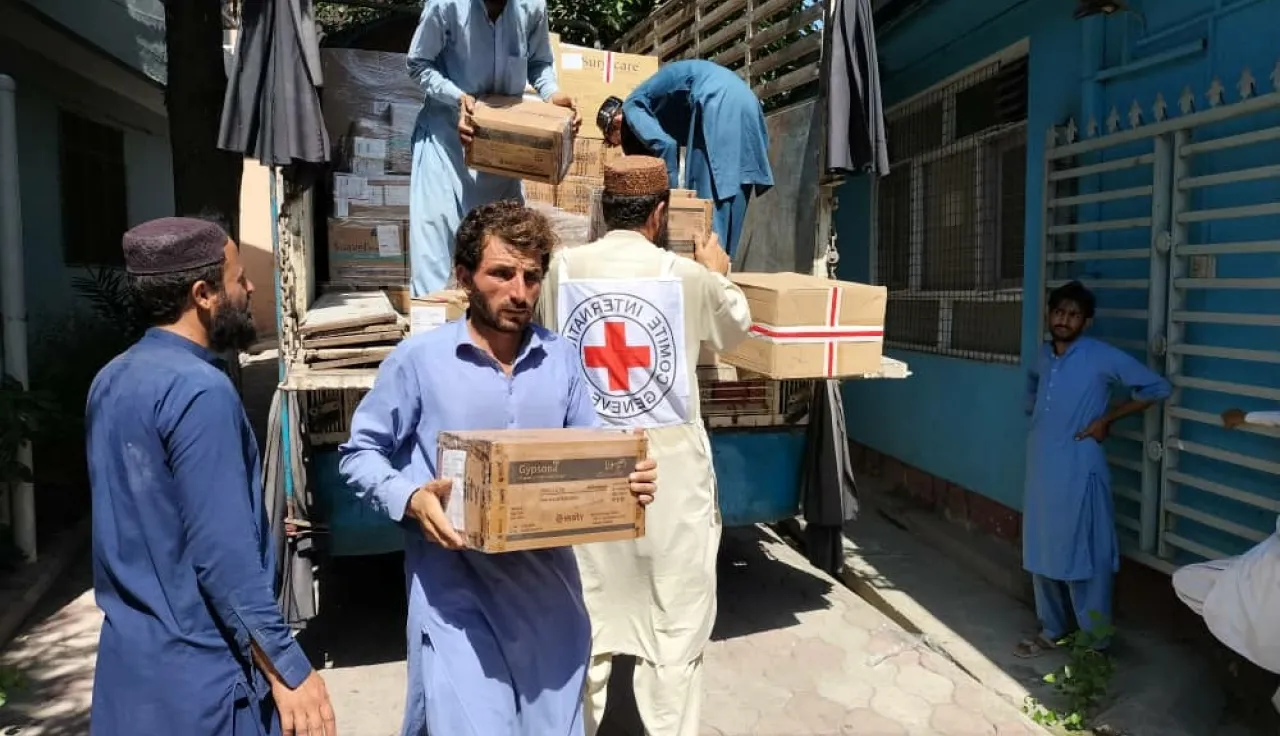
Supporting health care
To meet urgent medical needs following the earthquake, the ICRC delivered essential medical supplies including dressing material and oral and intravenous packages to hospitals across the affected region to treat thousands of affected people. We continue to monitor the situation following the earthquake. In coordination with local authorities and humanitarian partners, we stand ready to provide additional medical assistance as needed to the affected communities.
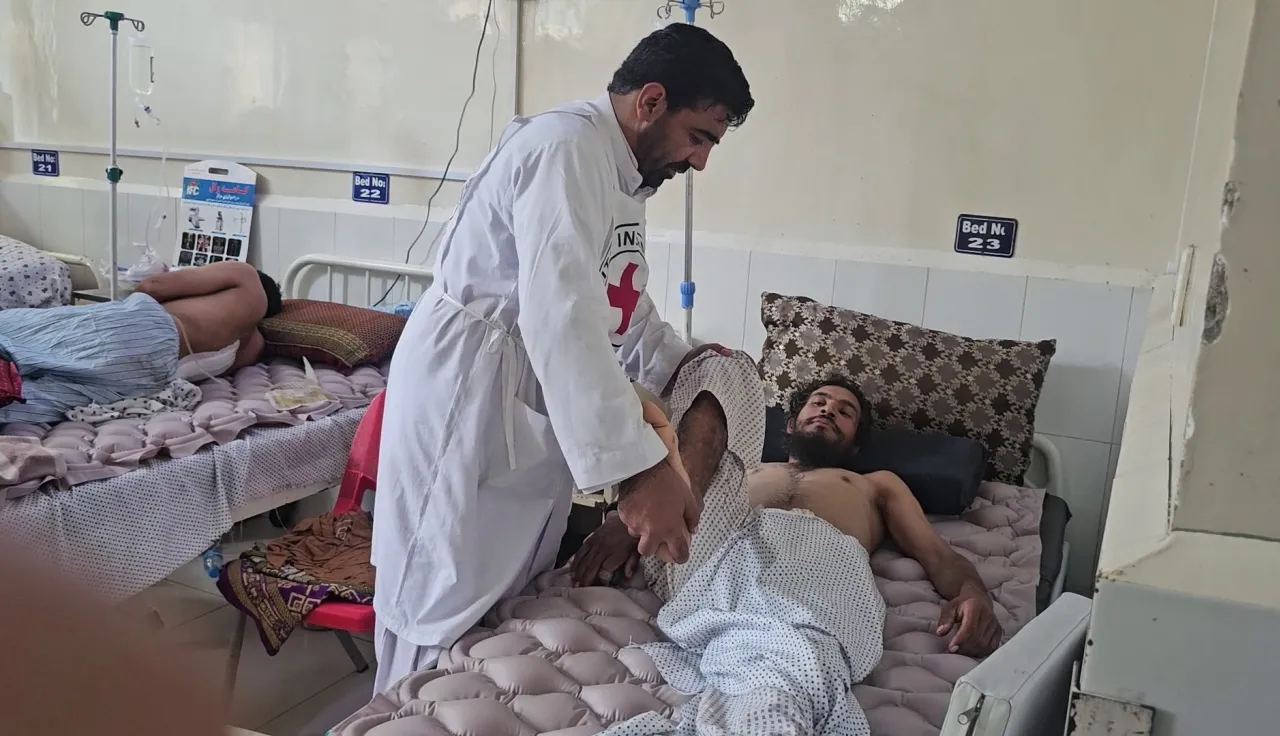
Assisting physical rehabilitation
Going beyond the initial emergency response, the ICRC’s physical rehabilitation programme in Jalalabad has focused on facilitating the long-term recovery of earthquake survivors. Clinical teams began early rehabilitation of patients with fractures and spinal cord injuries at both Jalalabad University Teaching Hospital and Nangarhar Regional Hospital, offering physiotherapy services, mobility assessment and guidance for ongoing care. These efforts aim to prevent long-term disability and help patients regain mobility and independence over time.
Enabling delivery of aid
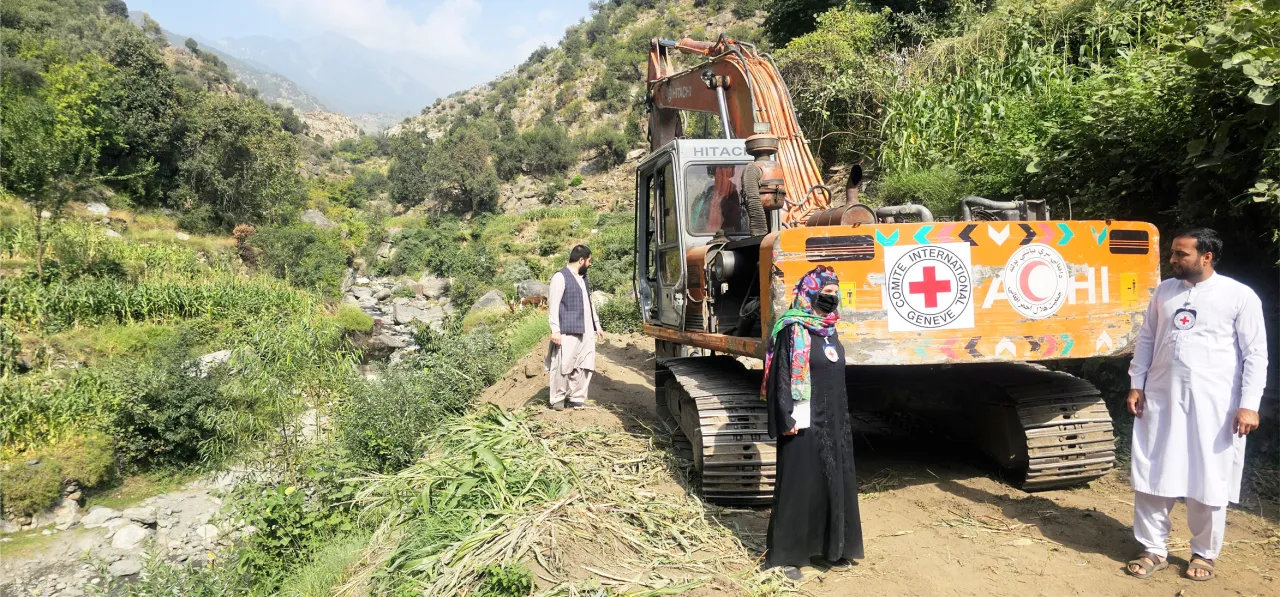
To restore access to isolated communities, the ICRC provided support for heavy machinery to be used to clear blocked roads leading to Areet sub-valley, which is home to around 10,000 people. Road access to Wadeer and Echomach valleys was also improved, helping nearly 19,500 people.
To reconnect isolated communities cut off by road blockages after the earthquake, we facilitated the use of heavy machinery, under the supervision of provincial authorities, to clear debris and reopen key routes. This also helped speed up the delivery of essential humanitarian aid and improved access to health facilities as well as other critical services. The efforts to clear and open the road to Areet sub-valley continue.
Reconnecting families
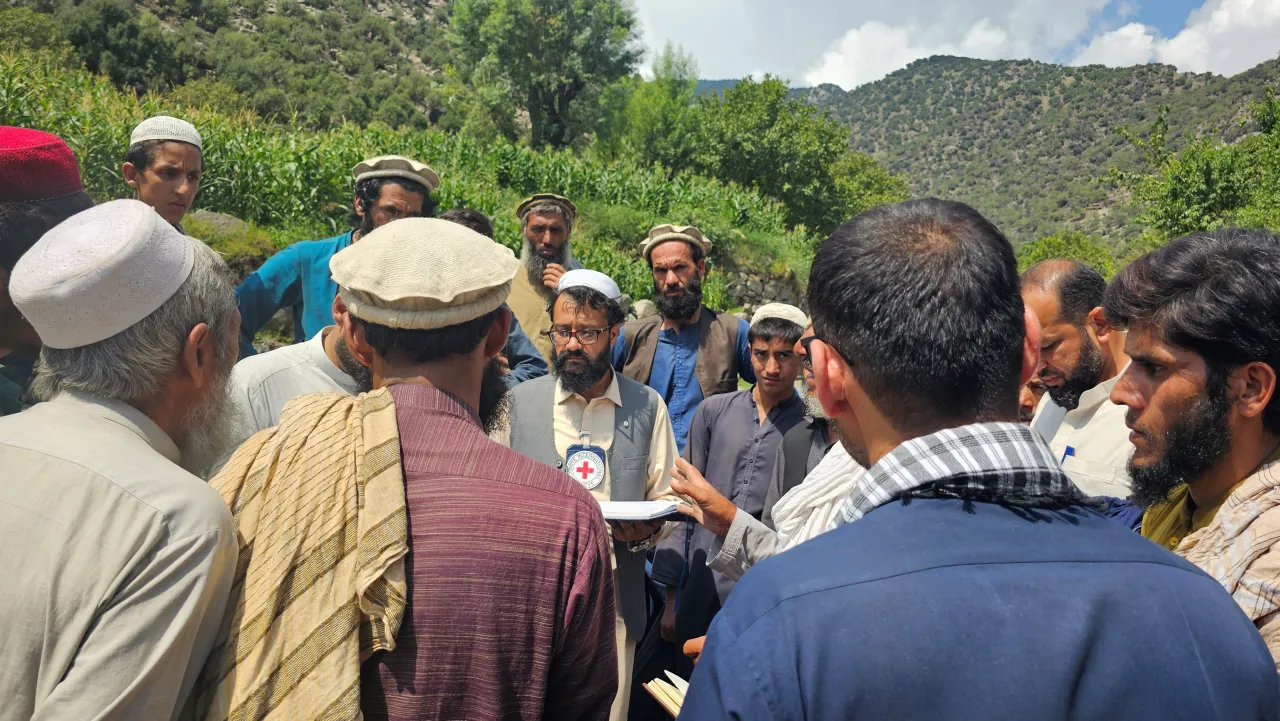
To help reunite loved ones separated because of the disaster, the ICRC provided technical support to the Afghan Red Crescent Society in Jalalabad. Volunteers were appointed to follow-up on tracing cases in local hospitals, while teams working with the Restoring Family Links service prepared for assessments and coordination work.
The ICRC’s teams also carried out field visits to Kunar Province to raise awareness of the Restoring Family Links (RFL) service among community members and explain how the service helps to trace and reconnect separated relatives.
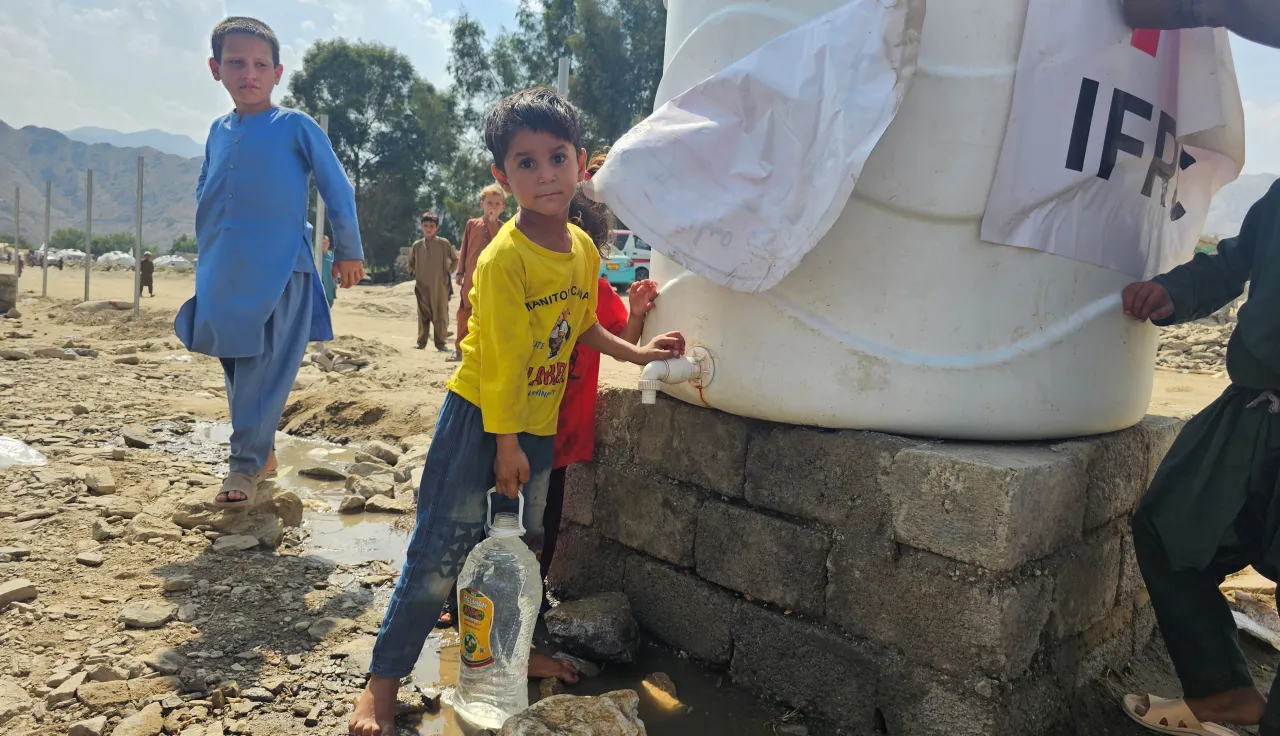
Providing clean water and sanitary facilities
Additional supplies such as water tanks, jerrycans, chlorine tablets, solar lights and protective equipment were also delivered.
To provide clean water and sanitary facilities for people affected by the earthquake, our immediate support to ARCS’s Water and Sanitation Unit included hygiene kits, chlorine, fuel, flexible water tanks, portable generators, light bulbs and 30,000 water bottles of 1.5 litres each. The ICRC is also supporting the ARCS by funding the construction of latrines, management of waste and delivery of water.
Facilitating search and dignified burials
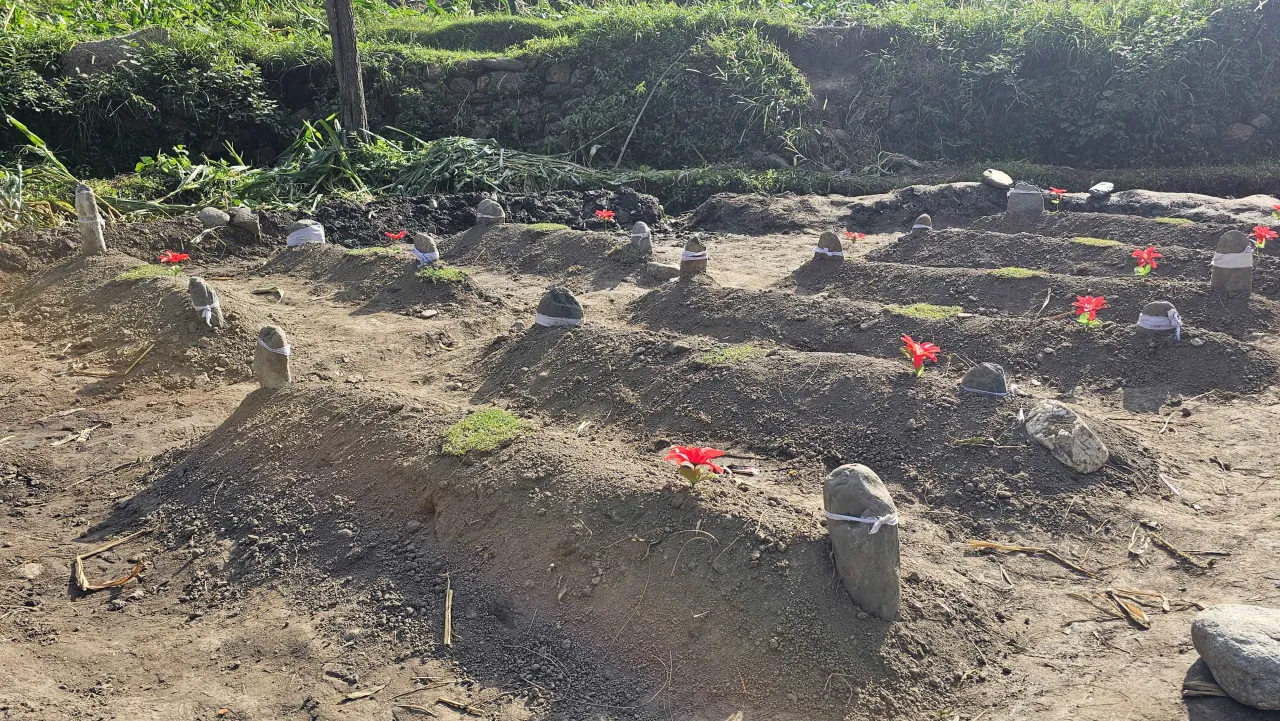
The ICRC supported Afghanistan’s Medicolegal Directorate, which sent staff members to earthquake-hit areas to help in the search and recovery operations in coordination with the Ministry of Defence and the Ministry of Public Health.
Materials such as masks, gloves, hand sanitizer and shrouds were donated to the Afghan Red Crescent Society.
Forensic items were delivered to support ARCS teams in the affected areas manage the dead in a dignified way. Additionally, we provided body bags, personal protective equipment and fuel costs for ambulances and ARCS volunteers to support the search and recovery of the deceased.

